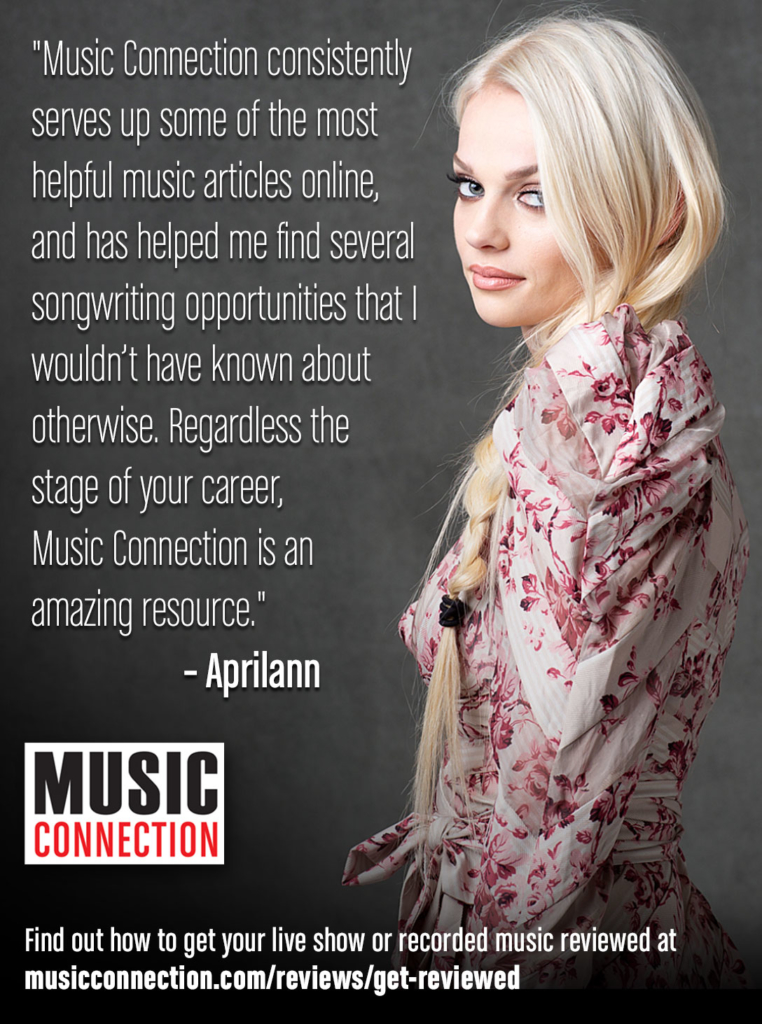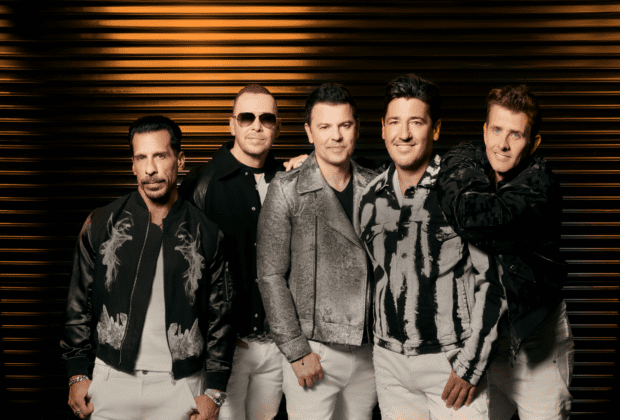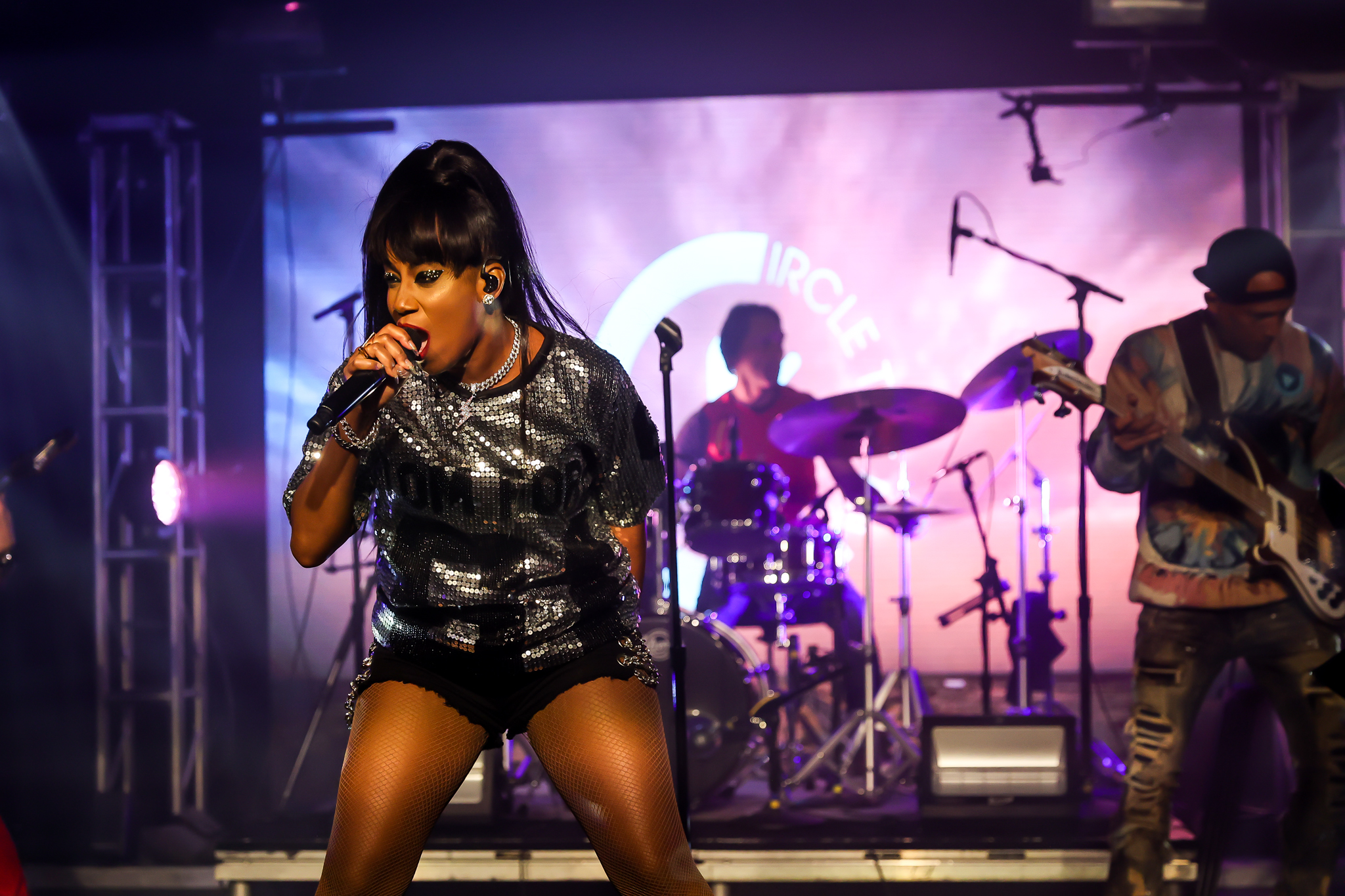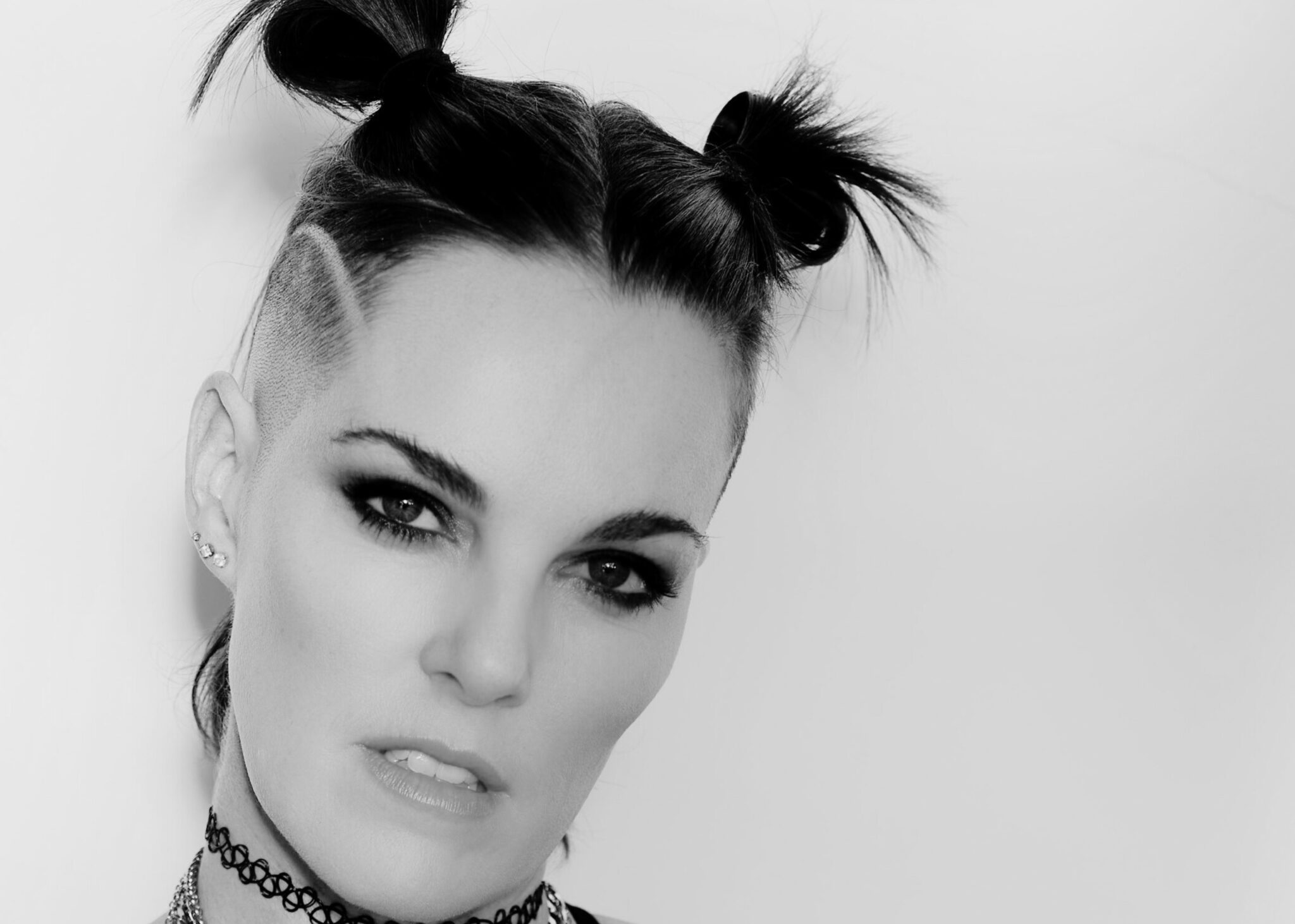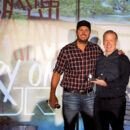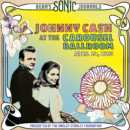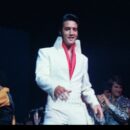It seems quaint in retrospect, doesn’t it? Five kids band together to form a musical group that goes on to achieve unimaginable levels of commercial success across the world. Say what you will about boy bands from yesteryear—or pop music in general—but there was a charm to New Kids on the Block, who formed in the mid-1980s, that wasn’t matched in subsequent decades by far more temporal YouTube sensations and the like.
Indeed, the affectionately nicknamed “NKOTB” from Dorchester, MA, achieved even more unexpected success by maintaining their presence on commercial radio and MTV. Sure, *NSYNC and Backstreet Boys blew up too—but only after the quintet of Jonathan and Jordan Knight, Joey McIntyre (who now goes by “Joe”), Donnie Wahlberg and Danny Wood blazed the boy-band trail. (Fun fact: NKOTB and Backstreet Boys joined forces and performed together from 2010 to 2012 as “NKOTBSB.”)
Say what you will about the lasting power of pop music—whether it be from the good ol’ days or contemporary times—but NKOTB defied all expectations by achieving stardom over the course of multiple albums. They broke through in 1988 thanks to the whopping smash hit “You Got It (The Right Stuff)” and stayed together until 1994.
Fast forward to 2008, when NKOTB reunited and proved that they could still draw tremendous crowds. The reunion, bolstered by a new album (The Block) and tour, went so well that the group decided to stick together. In 2013, they released another full-length record of original material, 10, and further expanded their presence with BlockCon (their version of ComicCon) and a cruise for their fans, the earliest of which were all grown up.
NKOTB return again in May with Still Kids, their first album of new material in 11 years. Music Connection touched base with Donnie Wahlberg and McIntyre (separately) before the album’s announcement and shortly before the group unveiled its new single on The Kelly Clarkson Show. They pulled back the curtain on how the album came together, why NKOTB decided to reissue The Block and how they still feel young at heart.
Music Connection: Congratulations on coming out with your first album of new material in 11 years. It must be an exciting time.
Joe McIntyre: It is. We’ve made some music over the years to keep the fires burning—some bonus tracks, some Christmas tunes. But it’s nice to have a new album.
MC: When did you start working on Still Kids?
McIntyre: Donnie was itching to make some new music, so he started a couple years ago. Jordan later jumped on a bunch of tracks. He usually jumps in early in the process.
Initially, I wasn’t super-engaged. But [that changed] when we decided as a group to make a new album, and Donnie said, “We’re ready for you.” I was trying to listen to my heart before getting involved. I started writing with [up-and-coming producer] Sean Thomas, who I toured with last year, and we ended up writing and producing about half the album: six songs. I was on the road a lot last year and had a lot of ideas.
[Still Kids] really picked up steam for me in September. It was go time, because we had to finish it by the end of November to make sure to came out [before summer]. Like most projects, no matter how much we plan, all of a sudden, when deadline arrives, you’re scrambling to finish it, making last tweaks and whatnot.
MC: That’s cool he gives you space to come into the process when you’re ready.
McIntyre: Yeah, initially I told him I wasn’t quite ready to jump in. He lovingly gives me that space.
Donnie was really excited and ambitious about making another album. If you know Donnie close-up, you’ll see he’s very good at managing the artistic process. A big part [of the writing process] is sharing what we’ve come up with to the [whole] group and hoping they receive it and are excited about it. We’re five guys with five lives and we’re not in the same city and we’re not coming up to the studio every day.
MC: What themes did you notice emerging during the writing process?
McIntyre: Where I am in my life, getting older, having a family and a successful marriage, and being part of the group. We’ve been working together in some form or another for almost 40 years. Between the five of us, there are a lot of relationships, so there’s a lot [of territory covered] on the album. The beauty of us being able to stay together is that our music just naturally feels cohesive.
“Stay,” the last song on the album, is one I wrote that’s more of a romantic song that I probably couldn’t have written until I became a father. But even that song could be applied to a platonic relationship that has a lot of love and history [in it]. It could even be about our group staying together or what we’ve been through with our fans. That’s what I love most about music: that it can take pull from all sorts of different experiences.
Another song, “Old School Love,” is about returning to a simple [expression] of love, just being together and connecting on a very basic level that [doesn’t involve] texting.
MC: I see that Taylor Dayne guests on that song.
McIntyre: Yeah. Especially for our generation, she’s beloved and has an iconic sound. She fitted. I haven’t heard the version [of the song] with her on it yet. We’ve always celebrated artists that we came up with, that we admired and loved.
MC: It must’ve been fun collaborating with DJ Jazzy Jeff too, for “Get Down.”
McIntyre: Yeah, he’s [coming on tour] with us, so to have him on the record is very cool.
I also wrote a song for Jon Knight, who historically doesn’t sing a lot of leads in the group. It’s called “Better Days” and celebrates his relationship with his partner Harley [Rodriguez].
[Knight] lives across the country to work on [an HGTV] show called Farmhouse Fixer. I tried to be patient and not push him too much. When I went to New York City for press to announce [our last] tour, he and I recorded his vocals in a hotel room. We banged it out after he said, “Let’s go. I know the fans are going to love it.”
MC: Between the [NKOTB] convention and cruise, in addition to touring and everything else, you must be really in touch with your fans.
McIntyre: Yeah, it’s really cool. This sounds corny, but sometimes we’ll get a message on social media that’ll cause us to sing our hearts out in an arena.
MC: How come you also decided to revisit The Block after 15 years?
Donnie Wahlberg: First and foremost, I think it’s a really good album, and I think most of our fans would agree. It’s one of the best albums, if not the best album, we’ve ever done. The band was reuniting, and we had drifted away for a while. The album [also] came along at a perfect time. If you recall, the country was in a real financial mess. It seemed like people needed some relief, and the album was a reminder of simpler times. Also, I was going through a divorce at the time, so it’s a very personal album. My life was in a real crisis point and [The Block] gave me something that I could enjoy again.
If I hear one of the songs on my iTunes, I can immediately go back to a time of both great personal duress but also tremendous joy. It was really fun and special and was [released at a time when] things started happening again with me and my band and our fans. We meet 200 fans a night [when we tour]. I think [The Block] allowed everyone to remember to love yourself again too.
It was [also] a very contemporary album. We worked with very relevant producers and people who [were] making some of the biggest music in the world at the time, like Lady Gaga and RedOne. We worked with different producers and hopped from studio session to studio session.
[Still Kids] will be a lot more in the vein of reflecting on life and looking back at the long journey we shared as a band and with our fans. The tenor of The Block overall was that we were still only in our 30s, still young enough to have a good time. We’re still young enough to do what we love to do. We’re not using our moms’ credit cards anymore—we have our own credit cards. But it’s important not to forget to serve that need for joy in our lives. We [started having] responsibilities that we didn’t have when we were kids.
The Block reminded everyone, “Hey, put an oxygen mask on yourself before you start helping everyone around you. If you’re not getting your own oxygen, if you forget about the joy and happiness in your own heart, it might [prevent] you from giving as much happiness as you can to everything else. It was hard for me to learn that [at the time], to have self-love.
MC: Are “joy” and “happiness” words you’d use to describe the new album as well?
Wahlberg: Yeah—but I would probably put “grateful” at the core of [Still Kids]. We tried to not take ourselves too seriously. We’ve struggled with that … there’s no manual on how to manage the level of success that we had at such a young age. Even the people around us oftentimes didn’t know how to handle it, as experienced as they were in the music industry. Very few people have seen that level of hysteria and mania.
Everyone was learning on the fly, even the experts who were entrusted to navigate us through [massive popularity]. It was hard to manage that when we were 19 years old. It’s hard when your dream is to be on the cover of Rolling Stone, and we were [in 1989]—but we were voted “the worst” in every poll in the magazine.
MC: Do you feel like Still Kids helps define your legacy?
Wahlberg: I don’t think we get to determine our band’s legacy. That’s for other people to determine—for every individual fan to determine. But we’ve really settled into a great sense of gratitude, of wanting to give back to our fans as much as possible. Ironically, the less we focus on [our success], we focus more on giving the fans what they deserve. The tone of how people respond to New Kids now is completely different than it was [before,] because we have longevity, we’ve proven to ourselves.
We truly became the opposite of what we started out as, in terms of this heavily marketed thing that was all about marketing and the corporate machine. When we got back together, we were independent. Of course, we did a record deal with Interscope and stuff… we pulled that together because of my relationship with [label co-founder] Jimmy Iovine. (I helped bring my brother’s album, Marky Mark [and the Funky Bunch’s Music for the People in 1991], to Jimmy.) [The Block] was a self-financed album. But [it didn’t feel like] there was a corporate machine behind us, just each other, the band, and the fans. We become aware when our fans really want a new album [from NKOTB].
The Block built a lot of confidence in me as a songwriter and as a vocalist—and even as a producer. I performed on many records [and had] written and produced a couple of number one songs, but I’d been away from [making music] for a while—I’d been really focused on building an acting career. When I felt inspired to bring the group back together, I trusted my ear [and believed] that I could still hear a hit record and knew what a good song was.
I didn’t know how involved I would become in the writing process. And, frankly, most of the records I produced were rap records and hip-hop songs. It was exciting to sit at a piano with RedOne and Lady Gaga, for example, and write a song from the ground up—even though I had produced and written a lot of songs. I oftentimes reverse-engineered a song based on a drum loop or something. I co-wrote “Good Vibrations” [by Marky Mark and the Funky Bunch]… I basically wrote the piano solo—but I didn’t really know how to play the piano. I sang it to a musician in the studio, and he played what I sang.
A lot of growth came with The Block and [2013’s] 10. I walked into the studio at the start of recording The Block... anxious and hopeful and somewhat confident, but unsure of what was going to happen. Now, I know that what is certain is that I’m going to enjoy the process and need to trust it, that my heart’s open and that I don’t indulge in any of my fears. In going through old footage of working with [producers of The Block], I could see how fun it was for me. The collaboration we’re doing on Still Kids are more with each other [than guest producers and featured performers].
MC: If you were able to give advice to your younger self, what would it be?
McIntyre: Well, I’ve always felt like I was shot out of a cannon when I was 15 years old and have been catching up ever since. That sounds dramatic, but it’s really the truth. There was no way to stop the train. There is some arrested development that comes with being in the top group in the world when you’re 15, 16, 17 and 18 years old. Having just turned 50, I still feel very young. Which is a good thing, because our music is vulnerable and passionate and has a [theme of] going after something with reckless abandon, without thinking too much about it.
Having said all that, to answer your question, I’d [tell myself] to have the courage to slow down, take a breath and ask [myself,] “What do [I] really want?”
Ever since we were kids, we’ve always thrived and haven’t ever really lost [our creative momentum].
Wahlberg: I would probably say, “It’s all going to be OK, no matter what happens.”
You know, we all came from such humble beginnings, and some of us from fractured families… there was divorce and alcoholism and a lot of chaos. When you become successful, it fills a lot of the holes… but it [also came] with so much criticism, it was frightening. We set out on this journey as a band… when we started to achieve success, it was very simple: get our songs on the radio and have a few people show up at our concerts in Boston instead of just our parents. Next thing we knew, we were a worldwide phenomenon. It was more than any of us could have imagined—and more than any of us were prepared for.
There were times we didn’t feel worthy of [our success]. “Gosh, do we deserve to be on the same stage as Whitney Houston tonight? This is insane.” We also wanted to defend our music and speak up for ourselves… there was [also] this fear that it was all going to be taken away at any second. Neither one of those things are completely true. All these years later, [we believe we] didn’t deserve to be number one on the Forbes list [of highest-paid entertainers in 1991] over Madonna and Michael Jackson. But, at the same time, we did work really hard to be successful and started committing to learning what was truly important.
We learned how to own who we were and what we are and to be honest and true to ourselves as artists — while servicing our fans [too]. We want to give them our very best, for all they give us and all the time and hard-earned money they spend on us. It’s important to give them as much our ourselves as possible—while being mature enough to realize that we aren’t entitled, but honored and humbled. I think we’ve done a good job of that.
So, I would tell my younger self to enjoy the journey, and that it’s not about awards and trophies, and sales and numbers. “One day, young Donnie, you’re gonna be backstage at a show and going through one of the hardest personal times in your life. You’re going to get a hug from a fan who’s gonna tell you that they’re going through the exact thing as you.”
QuickFacts
Mark Wahlberg (a.k.a. “Marky Mark”) was an original member of New Kids on the Block—but didn’t last long, quitting due to lack of interest in the group.
In 2001, Jonathan and Jordan Knight gave a rare interview to Oprah Winfrey, speaking about panic attacks and anxiety disorders.
Only one song from NKOTB’s first album, which was self-titled, reached the charts. It was the follow-up to their 1986 debut, 1988’s Hangin’ Tough, that brought massive success to the group, via the hit songs “Please Don’t Go Girl,” “You Got It (The Right Stuff),” “I’ll Be Loving You (Forever),” “Hangin’ Tough” and “Cover Girl.”
NKOTB almost broke up after the lackluster performance of their self-titled debut, but producer Maurice Starr convinced Columbia Records to give the group another shot
Starr first tapped Donnie Wahlberg to form NKOTB. He was responsible for recruiting the additional members of the group
More Hangin’ Tough, a 30th anniversary edition of the 1988 album, brought NKOTB back into the upper echelon (No.18) of the Billboard 200 in 2019. The reissue included remixed and instrumental versions of the album, in addition to some newly recorded tracks
